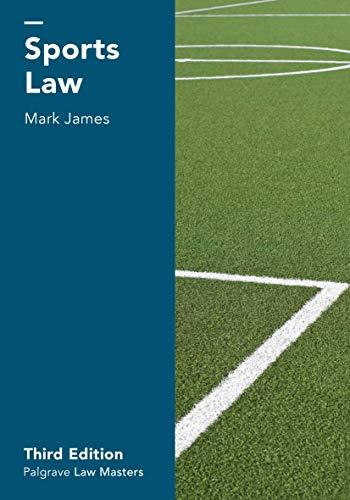Question
Arbitrability The arbitrator does not have authority to deal with all disputes that might arise between the union and the employer. Arbitrability refers to whether
Arbitrability
The arbitrator does not have authority to deal with all disputes that might arise between the union and the employer. Arbitrability refers to whether an arbitrator has the authority to hear the dispute and render a decision. A dispute is referred to as arbitrable if the arbitrator has the authority to hear it, and inarbitrable if he or she does not. There are several possible reasons why a dispute is inarbitrable. Labour Relations Issue 10-2 refers to a situation in which there was a question of arbitrability:
The dispute must relate to a matter covered by the collective agreement. If the collective agreement has been complied with, a matter is not arbitrable even though the results may seem harsh or unfair. The arbitrator may not have jurisdiction if the procedural requirements of the grievance process have not been followed, for example, when there has been a failure to meet a mandatory time limit.
When is a Dispute Arbitrable?
An employer established an early retirement plan that offered financial incentives to employees to participate. The plan provided that the employer could deny an employee's request to participate if the company would have to hire a new person to replace the prospective retiree. On this basis, the employer denied several requests to participate in the plan. The collective agreement did not refer to the issue of early retirement.
When some employees who were denied access to the plan filed grievances, an arbitrator dismissed them. It was held that because the disputes related to a matter not referred to in the collective agreement, the grievances were not arbitrable. In order for a grievance to be arbitrable, it must deal with an alleged breach of a term of the agreement or a violation of employment legislation.
- Dispute is referred to as arbitrable if the arbitrator has the authority to hear it, and inarbitrable if they do not.
When is a dispute Arbitable?
- The dispute must relate to a matter covered by the collective agreement
- *If the collective agreement has been complied with, a matter is not arbitable even though the results may seem harsh or unfair
- The arbitrator may not have jurisdiction if the procedural requirements of the grievance process have not been followed, for example, when there has been a failure to meet a mandatory time limit
'If an employee does x,y,z, the employee will be terminated.' This is not arbitrable. If this goes to arbitration, the arbitrator will say the matter of this person being fired is not part of this arbitration. They will instead look at as if it was fair, and the union will likely be wanting to get money for the person who got terminated.
Using the above information, coherently explain the meaning of the terms arbitrableand inarbitrable. Provide an example for each
Step by Step Solution
There are 3 Steps involved in it
Step: 1

Get Instant Access to Expert-Tailored Solutions
See step-by-step solutions with expert insights and AI powered tools for academic success
Step: 2

Step: 3

Ace Your Homework with AI
Get the answers you need in no time with our AI-driven, step-by-step assistance
Get Started


